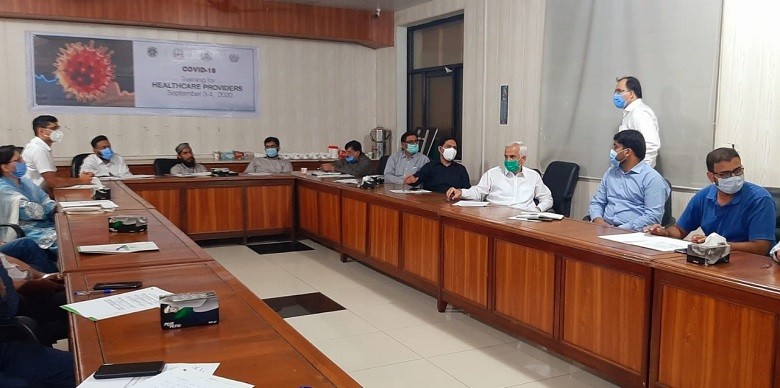By Hamid Khan Wazir
ISLAMABAD, Pakistan: The National Institute of Health (NIH) Islamabad will train around 400 clinical and hospital management staff working at different hospitals across the Country under its series of training and capacity building workshops.
The NIH Islamabad started to arrange a series of training and capacity building workshops for clinical preparedness and response to COVID-19 all over Pakistan.
The successions of these training of trainers on Clinical/Hospital management in the context of COVID-19 will help healthcare facilities and personnel strengthen their response to COVID-19, and to improve the health care system to “build back better” after the pandemic.
These training workshops are planned to be carried out in all provinces and regions of Pakistan.
The first three training sessions have been started at Lahore, Rawalpindi, and Multan targeting the clinical specialists and hospitals top managements for health service strengthen and support health workers during the COVID-19 pandemic and beyond.
A total number of 15 training workshops will be conducted at Rawalpindi, Multan, Lahore, Quetta, Muzaffarabad, Mirpur, Gilgit, Abbottabad, Swat, Peshawar, Karachi, Hyderabad, and Sukkur, during the month of September 2020.
Around 400 clinical and hospital management staff working at different hospitals in Pakistan will be trained under this initiative.
The Executive Director of the National Institute of Health Professor Major General Aamer Ikram has said that Preparedness is Key to Success. Before the COVID-19 pandemic, NIH conducted a similar series of training for points of entry, all over the country, in December 2019 and they performed well in delaying COVID-19 disease in Pakistan, he added.
He said that these workshops will help the whole country in the establishment of Isolation facilities, diagnostic facilities, RRT deployment, and treatment for COVID-19 patients at the district level, risk communication, infection prevention, and control against COVID-19.
He assured that the NIH will continue its technical support to all institutions for the furtherance of public health objectives in Pakistan.
